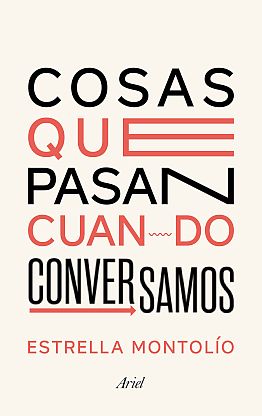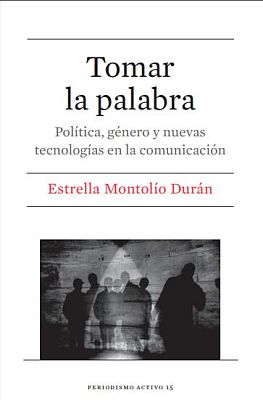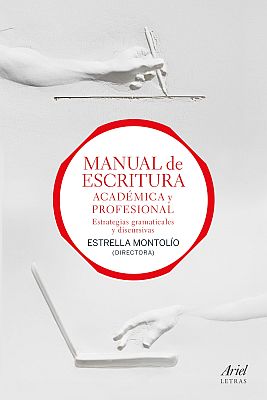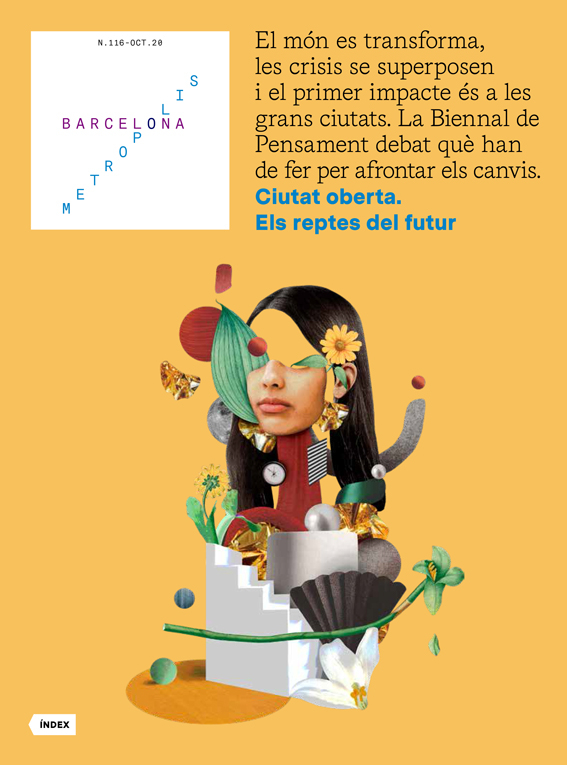
Ultra rhetoric is a new reincarnation of sophist rhetoric. It places fake news – a technological version of classic fallacies – at the heart of its communications programme, focused on the vilification of the enemy and the radical questioning of democratic consensuses to undermine them and find an opportunity to be present and to influence in the chaos.
From the point of view of ancient classical rhetoric, nothing that contemporary human beings report will be unprecedented, unheard of or inconceivable. On the contrary, everything said and written these days presents a certain air of recognisable familiarity: JF Kennedy’s public speaking fits Aristotle’s rhetoric like a glove, which proposes a balance between rational, ethical and emotional discourses; Martin Luther King revives the sacred art of medieval preaching; Obama is the ideal speaker envisioned by Cicero. In the same vein, ultra rhetoric is the umpteenth reincarnation of the well-known sophist rhetoric.
Figures of speech, understood as tactics to effectively structure speech and applied as a strategy to convince audiences, appear to prop up all the reliable discourses documented in history. In open opposition to the wide range of repertoires of rhetorical figures that serve to build ethical discourses, ultra rhetoric, as sophist rhetoric did historically, uses fallacy and sophism as driving forces behind its deliberately destabilising discourses in times of uncertainty.
The current conspiracy theorist frame of mind, which has given sophist rhetoric, now ultra, a new opportunity to break into and influence public conversation in a spectacular manner, is well described in “Chapter 8. Conspiracy” in New Dark Age. In his work, James Bridle puts forward a thought-provoking explanation about the current crisis of the stories that once created coherent frames of mind, now replaced by the devastating triumph of fake news, a kind of technological reincarnation of the classic fallacies. Cognitive science shows that human beings have always endeavoured to understand the world through coherent stories and have tried to organise it by connecting stories with worldviews (Vilarroya, 2018). However, in the stage of “adolescent” thoughtlessness in which the current hyperconnected society is still immersed (Schwab, 2016), the incessant tsunami of information that overwhelms us does not generate, in Bridle’s words, clarity and meaning, but rather confusion, noise and orphan stories that compete with one another for the attention of audiences, becoming convoluted and inconclusive and creating schisms in the way the masses geolocated and algorithmised by Big Data perceive reality.
Ultra rhetoric, addicted to the fabrication of the enemy, thrives on the paranoia and conspiracy frame of mind.
Fabricate the enemy
As Bridle points out, “One of the first symptoms of clinical paranoia is the belief that somebody is watching you; but this belief is now a reasonable one.” In a world in which there are already more smartphones than people and in which each smartphone is an effective spy system that automatically collects personalised information about what we do, where we go and what we want, everything leads to a mindset of paranoia and conspiracy. This mindset feeds ultra rhetoric, addicted to the fabrication of the enemy, who is linguistically constructed as a sinister model of evil against which lies, insult or any weapon of mass disinformation are justified.
Donald Trump has tweeted on multiple occasions – always without providing evidence or reasoning, only through statements-outbursts self-justified by suspicion – that global warming is a conspiracy against US companies, probably some kind of Chinese plot; or has contended on social networks that Obama has never been a US citizen and, therefore, should never have been the country’s president. In order to justify his call to build a wall to prevent the flocks of Mexican “murderers and rapists” from invading the United States, and despite having the most sophisticated state intelligence service in the world, Trump preferred, in the sophist manner, to resort to tacky videos, of undoubted viral impact and cooked up on conspiracy websites as incriminating evidence.
Let’s follow the run of an ultra fallacy in Spain. Vox leader, Santiago Abascal, launched his proposal for a “parental pin to protect children under six from indoctrination in erotic games. We assert that the teaching of erotic games has nothing to do with education and is akin to the corruption of minors ”. This pseudo-argument, reinforced by the assertiveness and vehemence of the speaker spreading it, is right in placing the words “education”, “indoctrination”, “erotic games” and “corruption of minors” in the same sentence, creating in the mind of the listener a semantic network, a possible world imaginable by the simple fact that it has been stated.
The media impact was immediate and was the subject of televised debates for weeks and resounding parliamentary clashes. Out of nowhere, ultra rhetoric knew how to inoculate something that was not on the news agenda in a media ecosystem that currently lacks effective antibodies against ultra propaganda. The life cycle of the fallacy culminated a few days later, when Pedro Fernández, Vox councillor in Madrid, elevated the sophism to an ad hominem argument, that is, to the category of insult and verbal abuse, in his speech in parliament against the elected progressives: “Look, do you know what I’m saying? Get off… get your dirty hands off my child, put aside your Marxist sexual desires and appetites for my child and, above all, I will not allow him or her, to lose all hope… give up hope of indoctrinating our children to make them sick like you. Thank you”. Ultra rhetoric points the finger, harasses, vilifies its enemies and lashes out at democratic consensuses to undermine them and find an opportunity to be present and influence in the chaos.
 © Raquel Marín
© Raquel MarínPractise lies
Richard Dawkins stopped attending debates with creationists in order to avoid lending them the reverberation that fostered his prestige as a scientist in the public eye, pointing the way towards the most effective known media coverage against lying: silence, a radical figure of speech of isolation and indifference that strips the polemicist bare and leaves them alone with their fallacies, to which no one listens or responds. Cicero already put this rhetorical figure into practice by ignoring the sophists in the public forum and letting them drown in the absurdity of their own oratorical poison. Before him, Aristotle challenged the sophists with his rational evidence-based arguments, just as fact-checker journalists challenge unfounded rumours, alternative truths, and ultra-rhetoric fake news today.
Aristotle challenged the sophists with his rational arguments, just as fact-checker journalists challenge ultra-rhetoric fake news today.
Social networks create Faraday cages that isolate the “samethinkers” in self-sufficient information bubbles that, using a constantly renewed stream of multimedia confirmation, feed back their biases, causing social polarisation. Ultra rhetoric focuses its arsenal of fallacies and sophisms on the destruction of what Bridle calls “the grey area”, the discursive space of coexistence and cooperation between different people, sensibilities and communities, now turned into a communications war zone in which unprovable facts and plausible falsehoods that ultra rhetoric pitch through staggering information flows are entrenched, with the aim of making the globalised information system implode, bogged down with pure entropy.
Along these same lines, Christian Salmon affirms in La era del enfrentamiento [The Age of Confrontation] that ultra rhetoric seeks to undermine people’s confidence in language, a critical distrust that Mark Thompson had already revealed in his essay Enough Said. This citizen suspicion of the value of words leads to the inability to differentiate between truth and lies. For that reason, Trump no longer tells stories, he is not a consistent narrator with an understandable plan; he is a speculator who fosters instability with his unrestrained production of angry tweets to entertain his followers, while he quietly deregulates the American economy. He uses ultra rhetoric to pursue an ultraliberal economic programme.
Using dysphemism
To better understand the language mechanisms this kind of ultra rhetoric uses, let us focus our attention on the analysis of the golden minute of the 10N [10 November] debate of the Vox candidate, Santiago Abascal.[1]
The key rhetorical figure in Abascal’s speech is dysphemism, a prototypical fallacy of both the sophist discourses of classical antiquity and the ultras of today. Dysphemism constitutes “the substitution of a disagreeable, offensive, or disparaging expression for an agreeable or inoffensive one” (Merriam Webster Dictionary) and “an expression with connotations that are offensive either about the subject matter or to the audience, or both”(Wikipedia). Thus, for example, “loony bin” is the dysphemism for “psychiatric hospital”, “bleeding-heart” for “socially-engaged” and “snail mail” for “postal mail”.
In this vein, Abascal’s statement “the progressive dictatorship that expects women to confront men and that wants grandchildren to have to condemn their grandparents” constitutes a double dysphemism: on the one hand, of equality policies in effect approved by a broad consensus of parliamentary majorities; and, on the other, of the Historical Memory law endorsed in Parliament. His statement about the (“autonomous communities’ misuse [of funds]” is a dysphemism of the territorial structure in autonomous communities enshrined in the Constitution, in the same sense that the statement “the fiscal plundering suffered by the Spanish middle and working classes” is a dysphemism of the constitutional tax structure.
[1] For a rhetorical and public speaking analysis of the golden minute of the candidates and spokespeople of the last electoral debate, see our paper “Nueva política, nueva y vieja retórica” [New Politics, New and Old Rhetoric] in Archiletras, 7, pp. 144-155, 2020.
Vox’s ultra rhetoric uses dysphemism, seeking vilification of the enemy and radical questioning of democratic consensuses.
At the core of ultra rhetoric, the fallacy of the dysphemism points to two fronts; on the one hand, to the vilification of the enemy (“the progressive dictatorship") and, on the other, to the radical questioning of democratic consensuses (“autonomous communities’ misuse [of funds]” and “fiscal plundering”). These are the two main verbal resources in their communications programme.
Let us now consider the use of verbs with a warlike meaning that Abascal uses in his speech: judge, defend, outlaw, combat, discriminate, divide, confront and condemn. The political picture that these verbs of great semantic intensity paint is that of a national emergency in the face of the multiple dangers threatening the country. This rhetoric seeks to provoke in the audience the impact produced by this kind of pointed lexicon, which exaggerates dissent to the point of a frame of mind no longer of dispute, but of warfare.
In the closing of Abascal’s final minute, the rhetorical figure of rebuttal takes centre stage, which involves discrediting the arguments that are contrary or unfavourable to their own propositions. At the pinnacle of his speech, Abascal cries out to restore a supposedly shattered constitutional order, to return all the autonomous communities’ powers to the central state, to get rid of equality policies. Following the standard communications programme of ultra rhetoric, in his speech, this politician proposes the global rebuttal of the constitutional democratic order as we know it today. And in the prototypical ultra-rhetoric manner, he supports his pseudo-argument with fallacies repeatedly discredited by the official statistical data provided by the fake news checking services of the main media outlets, for example in claiming that “illegal immigration fills our streets with criminals”.
In the last elections held in our country, Vox received 3,640,063 votes and became the third force in parliament. These are objective figures that measure the current level of penetration of ultra rhetoric in citizens’ minds.
References
Abascal, S., golden minute in the debate on 10 November. Madrid, 2019. https://www.youtube.com/watch?v=NHtCw7A8OUE.
Bonilla, S. and Montolío, E., “Nueva política, nueva y vieja retórica”, in Archiletras, 7, pp. 144-155. Madrid, 2020.
Bridle, J., “Capítulo 8. Conspiración”, in La nueva edad oscura. La tecnología y el fin del futuro. Cátedra, Madrid, 2020.
Salmon, C., La era del enfrentamiento. Del storytelling a la ausencia del relato. Península, Madrid, 2019.
Schwab, K., La cuarta revolución industrial. Debate, Madrid, 2016.
Thompson, M., Sin palabras. ¿Qué ha pasado con el lenguaje de la política? Debate, Madrid, 2017.
Vilarroya, Ò., Somos lo que contamos. Cómo los relatos construyen el mundo en que vivimos. Ariel, Barcelona, 2019.
Recommended publications
 Cosas que pasan cuando conversamosEstrella Montolío. Ariel, 2020
Cosas que pasan cuando conversamosEstrella Montolío. Ariel, 2020 Tomar la palabraEstrella Montolío. Edicions UB, 2019
Tomar la palabraEstrella Montolío. Edicions UB, 2019 Manual de escritura académica y profesionalEstrella Montolio (director). Ariel, 2014
Manual de escritura académica y profesionalEstrella Montolio (director). Ariel, 2014
The newsletter
Subscribe to our newsletter to keep up to date with Barcelona Metròpolis' new developments





